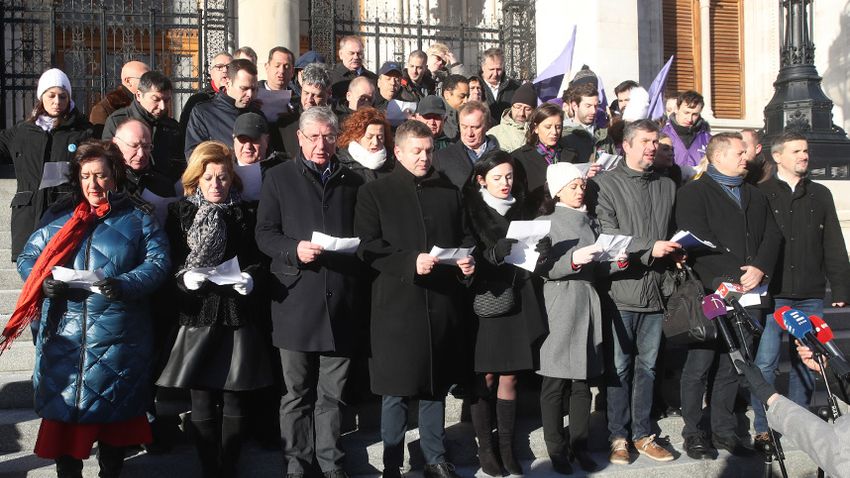Krisztián Talabér told the Magyar Nemzet that the left party entered the election with a joint list, it was just trickery aimed at maximizing profit. According to the analyst of the Nézőpont Institute, the organization of the left-wing alliance into representative groups is nothing more than profiteering, for which even cheating its own voters was not too high a price for the left.
Evasion of party and faction support rules opens up financial resources for the left that can be measured in billions on an annual basis. With this artificially fragmented line-up, the representative groups will receive nearly three billion more money in one cycle than if they sat in a faction, Krisztián Talabér told our newspaper.
The analyst of the Nézőpont Institute emphasized: with this "rubbed procedure", the surplus of subsidies to the parties is almost HUF 1.5 billion, and the subsidies to party foundations also mean extra income for them that can be measured in billions of HUF.
Based on this, it is absolutely clear that their narrative that the left-wing parties are being bled financially is a lie and a sham, said the analyst.
As Magyar Nemzet also reported: Máté Kocsis recently drew attention to the fact that six left-wing factions were formed in the new Parliament after "swaps and tricks". The faction leader of Fidesz emphasized: "they achieved a result of only 34 percent with the joint list, they have far fewer representatives than in the previous cycle, but they will still have more factions, and because of this they can get HUF three billion more". "That's why they played so many tricks," summed up Máté Kocsis.
After substitutions and tricks, six left-wing factions were formed in the new Parliament, Máté Kocsis' post reads.
It is known: thanks to various background deals and secret agreements, DK got fifteen representatives, Jobbik, Momentum and MSZP ten, Párbeszéd six, and LMP five in the new Parliament, even though they ran on the same list. For example, the Gyurcsánys gave the mandate of Klára Dobrev to the LMP so that the Green Party could form an independent faction.
A party entering the parliament can obtain financial resources under many different legal titles, which are covered by the central budget. According to the current legislation, the parties forming the faction are entitled to a basic operating fee, which amount is the same for everyone, regardless of the size of the representative group - Krisztián Talabér explained the background of the left's trickery.
As he said, in addition to this, additional resources are opened for each representative, which can also be used for the operation of the faction. They can use a separate budget for various office equipment, and they also receive coverage for the cost of operating them. Each representative can spend nearly HUF three million to hire experts and assistants. The analyst emphasized: the parties are entitled to support not only according to the number and size of the representative groups, but also in light of their results in the parliamentary elections. Among the parties that enter the National Assembly, 25 percent of the total party support framework is distributed equally.
Thanks to this, a party with 5% and a party with 50% are entitled to the same amount of funds from this framework, a practice that should be reconsidered in the future.
A significant part of the resources are tied, i.e. they do not depend on the number of representatives, said Krisztián Talabér. As he put it: depending on all of this, the fact that the left went to the election with a joint list - with the message that they will now politicize as a unit - was just a ploy aimed at maximizing profits.
- It can be stated that the organization of the left-wing coalition into representative groups is nothing more than money-making, for which even cheating its own voters was not too high a price for the left-wing, said the analyst of the Nézőpont Institute.
Source and featured image: Magyar Nemzet












